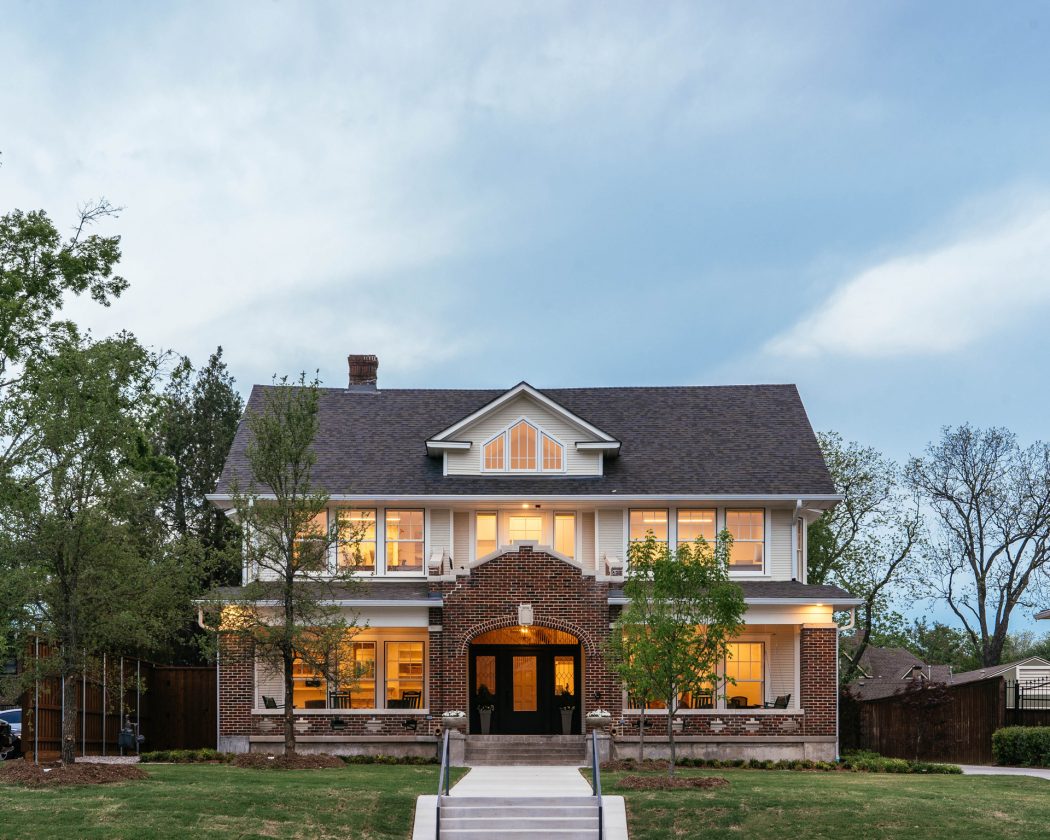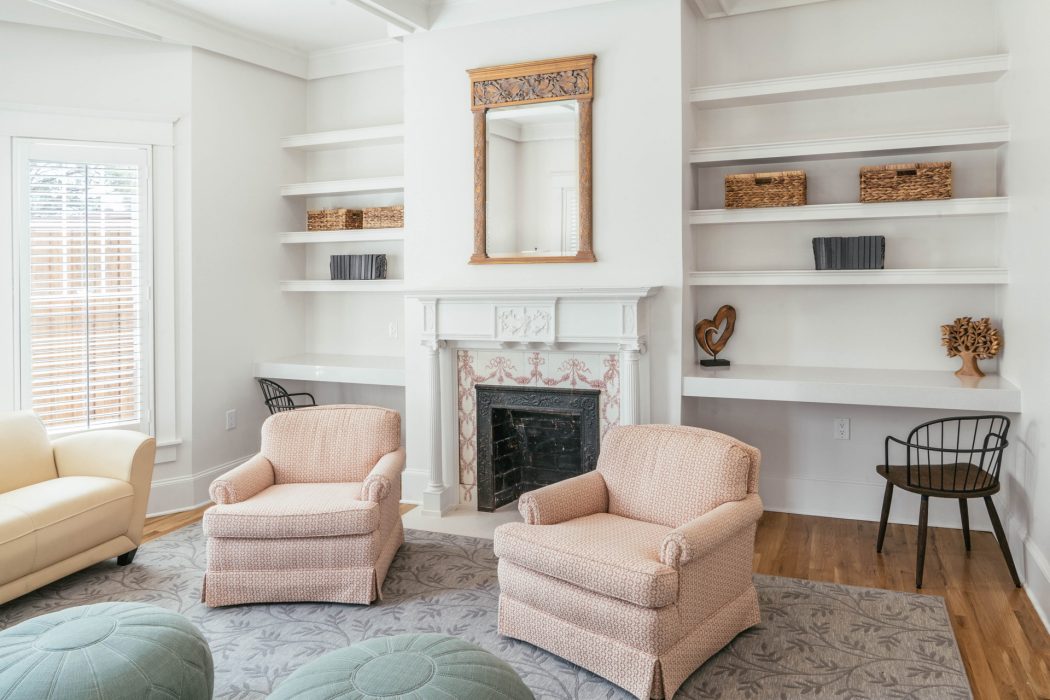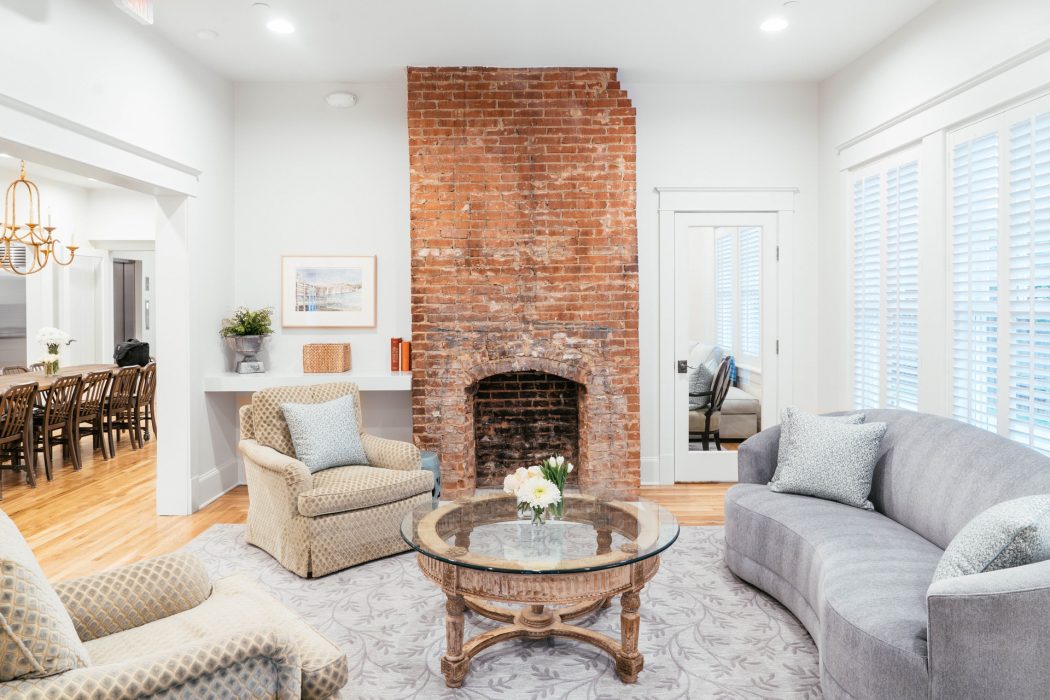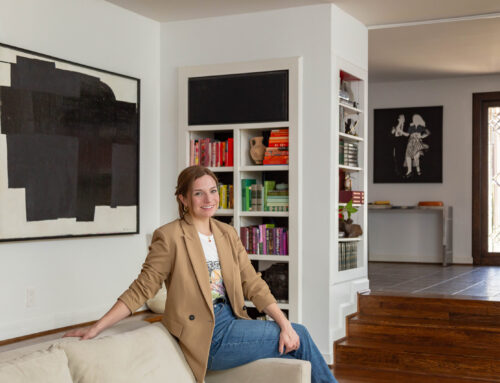
The house of refuge on Redwood Circle in Little Forest Hills was beginning to cave. Though loved and cared for by the women of The Magdalen House — where women have sought treatment for alcoholism since 1987 — the home could no longer shoulder the formidable work and growing demand.
The nonprofit’s executive director, Lisa Kroencke, who spearheaded a capital campaign to raise funds for a new facility, says there came a point while serving as a volunteer board member when she realized people trying to recover from alcoholism are worthy of something beautiful.
“A lot of these women, including me, had felt so much shame that they thought this dilapidated building with asbestos and faulty wiring was about as good as they deserve,” she says.
“I recognized that if we were going to grow, it was not going to be in that physical space. We either had to rebuild there, or we had to find a new facility.”
They were a far cry from being able to afford it — “$20,000 in the bank, $185,000 operating budget,” Kroencke recalls. The David Crowley Foundation came through with a $600,000 grant to purchase property in the Peak’s Suburban Addition, a historic preservation district in East Dallas.
The remodel would cost another $2.8 million. But that donation kick-started something that could not be stopped, a whirlwind three years of further fundraising, navigating code and Landmark Commission rules, weathering storms (a literal tornado and a pandemic) and designing and constructing a new Magdalen House.
One year ago, Maggie’s relocated to a studs-out-remodeled 12,000-square-foot historic mansion. The place brightens up the entire 4500 block of Gaston Avenue. It allows The Magdalen House to treat 20, rather than 14, inpatients at a time and accommodate workspaces for 22 full- and part-time staffers. The size of family and community meeting rooms have doubled.
Today, it’s a home worthy of its occupants.
THE LONELIEST THING IN THE WHOLE WORLD
Swinging open the front door (a replica of the home’s original, framed-by-leaded-glass windows), Kroencke greets guests with an effervescent grin, a touch on the shoulder and welcoming words. One might mistake her for a TV news anchor, her vibes merging mom-next-door with local celebrity.
After a career in marketing, and memberships on several nonprofit boards, Kroencke now serves as The Magdalen House’s executive director.
Her rap sheet is as impressive as her resume.
Without discomfort, she discusses days spent in jail, detox centers and rehabilitation programs. It started in her late 30s.
“I was 36-37 when I noticed that my drinking had changed. And it wasn’t even about the amount, really, but the importance.”
On the outside, Kroencke’s life was quintessential — first in her family to graduate from a university, traveled the world as a flight attendant, landed a dream job at The Richards Group where she met her husband, Dave Kroencke. They raised four sons.
She tried to control her problem and hide it as long as she could. That became increasingly difficult.
“It’s the loneliest illness in the entire world, because you have this secret, and you have to constantly pretend — to yourself and everyone — that everything is OK,” she says.

The seams of her world were coming apart. She was drinking in her closet, thinking about suicide. She and Dave divorced. She saw doctors, psychiatrists, joined a church and attended self-help meetings. None of it worked. “Because I looked at it as a punishment,” she says.
Following a particularly awful Grey Goose Vodka binge, she found herself in a new support group with a member who read to her from a book written in the 1930s. The literature explained that she might suffer from a sickness that willpower alone cannot overcome and outlined principles that many had used to achieve sobriety.
The American Medical Association has since classified alcoholism as a disease and endorsed the dual classification of alcoholism by the International Classification of Diseases under both psychiatric and medical sections. While there are various treatments, there is no known cure, so many have turned to those principals.
As this worked in Kroencke’s life, all those once-shameful incidents would serve as useful tools in her new vocation.
“What I thought was my curse became my greatest asset, because that behavior and those experiences are why women trust me,” she says. “If not for all these experiences, I’m just some blonde woman trying to sell you on a pyramid system.”
COST OF ADMISSION: ‘WILLINGNESS AND DESIRE’

Executive director Lisa Kroencke spearheaded a capital campaign to raise funds for a new facility. Photo by Jessica Turner.
The Magdalen House is not an Alcoholics Anonymous affiliate, even though the program was initially founded by AA members. Participants take AA’s first step, admitting powerlessness over alcohol, when they call the admissions office.
In the program, they are introduced to the other 11 steps and are encouraged to find a sponsor and a healthy AA group near home. There are 115,326 AA groups in 175 countries today. Because so many women in the Dallas area have come through The Magdalen House, alumni can help newcomers find a good home group, says director of outreach Ainsley Chapman.
“We are everywhere,” she says.
She’s a Maggie’s alum herself.
Since its inception, Magdalen House has offered a 14-day, in-house, social detox program free of charge and without government funding; public subsidies often come with bureaucratic regulations that can impede service, Chapman says.
When Chapman’s parents begged her to get sober, she tried. She once checked into a medical detox hospital for a 10-day program but was booted after three days because her health insurance provider wouldn’t cover it. She was in and out of other facilities, but being sober on the outside was unbearable.
“I remember lying on the bathroom floor, chugging a bottle of vodka, bawling tears thinking I’m losing my mind because I feel like I’m doing this against my will.”
Learning more about alcoholism at Maggie’s made her feel reborn. “I feel like this is the house I grew up in.”
Insurance, finances, whether you have proof of address, a Texas ID or a Social Security number — when Chapman speaks with a woman seeking help at Maggie’s, none of it matters.
“Identify as a woman, be over 18, have a problem primarily with alcohol, that’s the criteria,” Chapman says. “And she must call us herself. It’s all about her willingness and desire.”

Maggie’s also offers a three-month outpatient program for alcoholic women in any stage of recovery. It’s recommended to those who have completed the in-patient stage. Offerings also include an array of classes, support groups and workshops for men and women, including a family support group for loved ones of alcoholics.
Kate Richter joined Maggie’s as development director because she loved what they did for women.
“Raised by a single mother, I believe in the mission of women empowering women.”
She helped organize the biggest fundraising event in Maggie’s long history, a dinner where Laura Bush delivered the keynote. The former first lady acknowledged that “some 250,000 women in Dallas-Fort Worth are alcohol dependent” and that “The Magdalen House’s treatment plan has saved thousands.”
When Richter learned someone close to her was struggling with addiction, it gave her a deeper appreciation for Maggie’s family support groups, which are for anyone suffering, even if the alcoholic loved one has not sobered up.
“The husband, friend, mom, dad and children also learn that it’s not a morality issue. That was instrumental in me being able to know how to support my loved one,” Richter says.
Lisa Kroencke’s husband Dave participated in the family programs. They have since remarried. Now Dave speaks to and works with other alcoholic spouses. He was a key member of the committee raising money for the new house.

THE HOME OF HER DREAMS
Perched on a fireside pastel armchair in the sun-splashed family room, Kroencke concludes the story that, as a speaker and philanthropist, she tells on a regular basis, which doesn’t stop the waterworks.
“I am just so grateful, for all of it. Every aspect of my life is better than I could have imagined because of alcoholism,” Kroencke says.
Just awarded Preservation Dallas’ 2022 Preservation Achievement Award, she says the Maggie’s House renovation marks the pinnacle of her dreams.
“To give alcoholic women a dignified space to recover from a disease. Where their children can come visit. Where they don’t ever have to feel shame because they reached out for help.”





